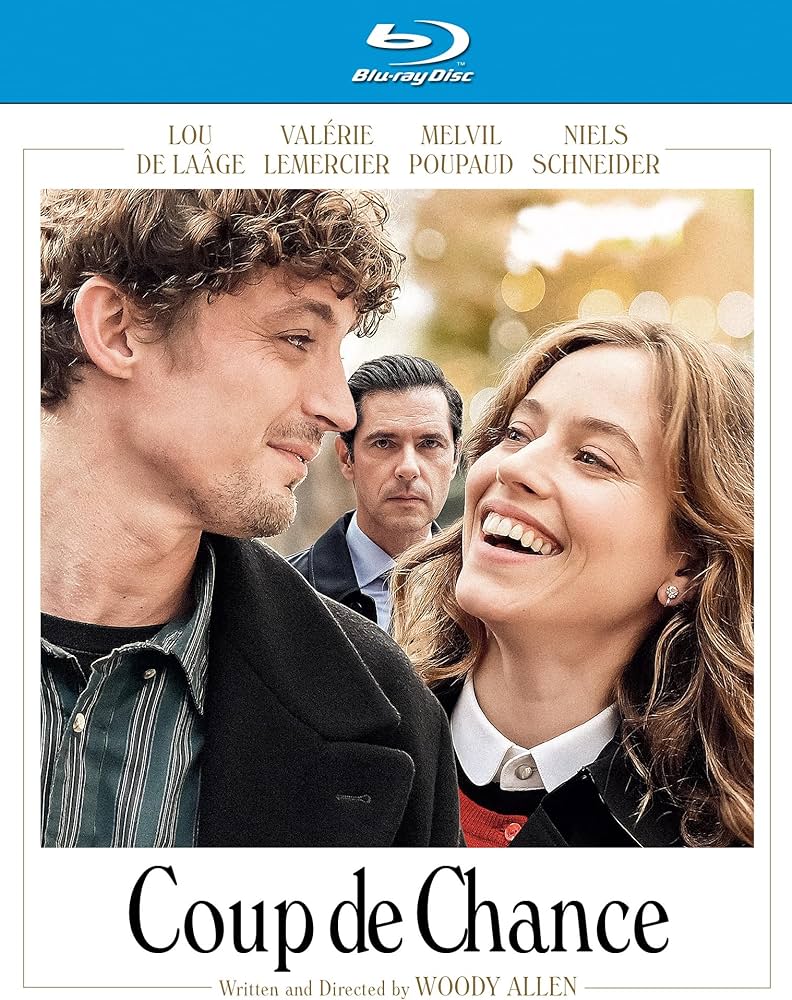Husband and wife Fanny (Lou de Laage) and Jean (Melvil Poupaud) seem like they have a blessed existence, a perfect portrait of matrimonial bliss. They are the ideal upper middle class power couple, living in an upscale neighborhood in Paris and are still able to generate real love for one another. At least, that’s how it starts. We start to see the seams in the relationship when Fanny runs into an old classmate of hers Alain (Niels Schneider) and they immediately strike up a very friendly rapport as if no time had passed. As Alain and Fanny start meeting up more often and growing closer, Jean begins to grow increasingly more uneasy until emotions start to bubble over and something has to break.
For those counting this is Woody Allen’s 57th directorial effort (including What’s Up, Tiger Lily, his TV movies and the mini-series Crisis In Six Scenes), and by this point it should be no surprise that Allen is starting to repeat himself. Coup de Chance has received many comparisons to his previous film Match Point, both films featuring upper class socialites entering relationships of betrayal and desire that ultimately lead to fatal crimes. Crimes and Misdemeanors also had a similar feel but with a little more of Allen’s ironic cynicism than Coup de Chance or Match Point. Coup de Chance, more than any Allen film I’ve seen previous, is a rumination on the nature of chance and its role in the universe. We watch multiple conversations with characters discussing how chance plays into their lives and how big an affect it has on destiny. At times, it feels even more heavy-handed than Allen usually is. Woody Allen’s films are often fairly self-indulgent but they can offer insight into him as a director and a person. This fixation on chance though does bely an even more fatalistic view than I’m used to with Allen, and there are things that happen here that reinforce that view quite overtly. While I think Coup de Chance has some interesting ideas swirling around in here, I can’t help thinking that Crimes and Misdemeanors and Match Point are getting more and more distant as Allen becomes less and less nuanced.
The transfer here looks very nice and balanced. The film has many outdoors sequences and the colors strike just the right saturation levels to pop quite nicely. The audio comes in both 5.1 and 2.0 French tracks, and honestly I didn’t notice much of a difference between the two. Most of the film is very dialogue heavy and doesn’t take advantage of the rear channels outside of some mild ambient noises. Having said that, the film does have a great, more modern jazz score than I’m used to with Allen and the 5.1 surround is appreciated from that standpoint. As expected from a Woody Allen blu-ray, there are no extras to speak of here aside from a trailer. Allen is a director who believes the films should speak for themselves and you have to at least respect his consistency in his opinion on this matter.
Coup de Chance isn’t one of Allen’s more original films, and at this late stage in his career, we see some common motifs reappearing that he’s tackled in the past. Still, for Allen this is a competent effort presented with a very nice transfer that should delight long-time Woody Allen fans.

